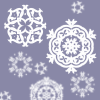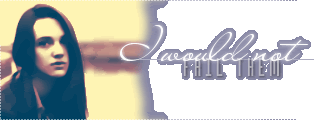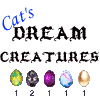|
|
Post by Swallow on Jan 25, 2006 19:34:10 GMT 11
Just been watching the news, and i think John Howards has done it again, he's reflecting that 1950s gold that he thinks Australia should be. (Huzzah to ABC for showing majority Asian students in their shots of classrooms, nice dig)
He's trying to tell us that we don't know Australian History as well.
here is the link to the printed story :here
but here is an excerpt from it:
The Prime Minister has also called for a return to traditional history teaching in Australian schools.
Mr Howard raised concerns that few students are learning about Australian history, and lessons are falling victim to crowded curriculum.
He says classes should include Indigenous and western history.
"You cannot get people to understand the history of a country unless you have some kind of chronological narrative teaching of history," he said.
"And this idea that you should move away from sort of knowing when the Battle of Hastings was or knowing when Captain Cook came to Australia or knowing when certain things occurred simply because, 'Oh that's an old-hat, rote way of learning', is ridiculous."
Now, i don't know about the rest of you, but i was force fed Australian history until year 10 when i yelled at the teacher and begged for something different. If i had to watch another horrible movie about a poor Aboriginal woman having their child taken away i was going to scream. Don't get me wrong, i know it's terrible, but i was watching those movies so much that i was starting to think the entire Australian history consisted of crying Aboriginal women.
But i wanted to know if this was still the case, those out there in those year levels, can you tell me if you still have Australian units. Do you know about Captain Cook? Do you have a rough idea of Tasmen, of who landed here first, do you know who the Banksia is named for? If this has been completely ignored, then i'll have to agree with it to some level, but i was taught it to the point of choking, so i don't know what he's been going on.
Another thing to consider, i couldn't find the exact transcript (he's also on the 730 report tonight, i believe, so i might be able to grab it from there) but he said it at the press conference, again, i don't have the exact quote, so i could have interrpreted it wrong, but he bassically said that teaching children to be objective about 'objective' reports on history is wrong. How does that work, then? Shouldn't children be taught to be objective? Should we just take things on face value? History is written by the winners, and the winners cover up their nasty things, so you should never take any historical document at face value.
At least that's what i think.
Anyway, he should have the transcript of that press conference up on his site by tomorrow... I'll put up the best bits of it when it shows and see if that's what he said.
It makes me worried when our PM is trying to encourage people not to be objective.
Someone want to say fascism?
|
|
|
|
Post by Lix on Jan 25, 2006 21:00:24 GMT 11
oh god another australia day debate. lets try and keep this one above the belt. therefore i wont/cant comment.
|
|
|
|
Post by Ness on Jan 25, 2006 21:05:37 GMT 11
in relation to school and history class i can understand y u felt like that... im in year 12 so the ciriculum may have changed and i think its different in each state...
we did the first fleet a thousand times in primary (yrs 1-6) ... high school though was a different story ... in yr 7 we did ancient history i.e. ancient rome and greece and medieval history and i loved it. Year 8 i cant remeber becuase i didnt concerntrate that year  but it was world history... Year 9 and Year 10 was wen we did aussie history... but it was world history... Year 9 and Year 10 was wen we did aussie history...
|
|
|
|
Post by Lix on Jan 25, 2006 21:20:08 GMT 11
yeah it was the oher way around when we went thru.
|
|
|
|
Post by Elspeth on Jan 25, 2006 21:45:31 GMT 11
We learnt all about the First Fleet and the early explorers and Burke and Wills carking it in the middle of the bush when I was in primary school. Over and over and over again... And then in secondary school, it went like this: Year 7 - Ancient History: Sumer, Egypt, etc. Year 8 - Medieval History Year 9 - Australian History Year 10 - American History -- These were all half year subjects, too. And my Year 9 teacher was rubbish. In Year 11, I studied history voluntarily. We studied world history, starting with the Russian Revolution, moving onto WWI and then Vietnam. I was so inspired by my history teacher that I dropped French in Year 12 and picked up history instead. We studied the first half of Australia in the 20th century - WWI, the Depression and WWII. I loved it to bits. I don't really think that much has changed, apart from the methods used to teach. Australian history is never going to be off the curriculum. Last year, when finishing off my Arts degree, I studied a subject that was essentially Historiography: the way in which history is written. There are so many "facts" of history out there that are anything but and if we don't teach kids to challenge and doubt, then I feel we're selling their education short. And that is my mini-rant for the day.  |
|
|
|
Post by Swallow on Jan 25, 2006 22:15:15 GMT 11
oh god another australia day debate. lets try and keep this one above the belt. therefore i wont/cant comment.
Oh! this isn't intending to be another Australia Day/patriotism arguement, and i hope it doesn't descend into that. if it does i'll start glaring at people. I just wanted to discuss the importance of history, and teaching methods. and whether people should be taught how to be objective. that was the main reason. |
|
|
|
Post by Squirt on Jan 25, 2006 22:19:41 GMT 11
I studied Australian History all through High School and then majored in History at uni. Years 8, 9, 10 and 11 were all a bit first fleety and almost fairy tailish, I dunno how else to say it, but it was almost as though the teahers were totally uninterested in it and were unable to teach it to us in a way that made it seem real. In year 12 we studied WW1 and went to Turkey, France, Britain and Belgium and visited Australian War sites such as Fromelles, Flanders Fields, the Somme and Anzac Cove and it was absolutely amazing. I loved every minute of the class and the trip. I think it was worth going through all of the boring yr 8 - 11 stuff just to get to yr 12 where we had a teacher who was really into the topic.
Uni was great too because our lectures were Aboriginal people and they made the subject so interesting. I actually enjoyed Australian History more than any of the other histories I studied (Irish, World, Turning Points in World History...)
I'm a big pro Aussie History person, but if people are being taught to be non-objective about it then they're not really learning it at all, they're learning one little piece of it and I'd rather not have it if it came down to that. I guess learning only small bits of an issue causes things like the Cronulla (sp?) Beach riots...
That prob makes no sense I was just writing as I thought about it and I'm a pretty muddled thinker.
|
|
|
|
Post by Siryn on Jan 25, 2006 22:52:57 GMT 11
My history learning through school was pretty much the same as Ness'.
I really HATED history though and especially Aust. history.
Maybe this was coz we spent so much time on the bad points. i think if we learned some nicer events in Australian history i wouldn't have felt like $*** after each lesson and maybe even have (to some degree) come to enjoy it.
|
|
|
|
Post by shadowoutcast on Jan 25, 2006 23:58:25 GMT 11
I have a fancination for Ancient History, and somehow achived an Australian Studies (SACE) unit without know that I ever done anything in that subject  . But from a personal view I find Australian History more like a short story, we may have become the Commonweath of Australia in 1901 but it was after WWI that we considered ourselves seperate from England (although it is not offical). And just over 100 - 150 year of history is not history, its more a past in my opinion. |
|
|
|
Post by Squirt on Jan 26, 2006 0:04:01 GMT 11
When I think of Australian History I think of everything that got us where we are today, the good and the bad of it. Not just Aboriginal History and everything since the first fleet but stuff in other countries that led to Australia being settled/invaded/discovered (depending on your perspective).
|
|
Schis
Guildmember
 
 Schis- the elipsis user...
Schis- the elipsis user...
Posts: 2,251
|
Post by Schis on Jan 26, 2006 7:43:51 GMT 11
Well my History experience in school...
In primary school it basically focussed on the first fleet and captain cook, but I think we did a little bit on Aboriginals (although im not sure if we did). Yr 7 we did Ancient Greece, Ancient Egypt and I think a little but on Aboriginals maybe... Yr 8 we did Medieval History (Dark Ages) and some south American History- I think it was the Aztecs. Both Yr 7 and 8 we did History for half the year whilst we did geography the other half. Yr 9 i did elective history which had basically no structure and primarily consisted of watching videos. We did a bit on Africa and slavery which led into slavery in US. Then in Yr 10 i did Australian History, basically from federation on. In yr 11 I really wanted to modern history, but end up having a clash with one of my other subjects and so decided to do Ancient History. We started basically at the beginning of man and from thei on, but I didnt stay in there for very long as I couldnt stand it- although the teacher is great (she did what she could with a crap syllabus) I didnt like the substance and so dropped it.
In regard to being objective I think that history has to be taught that way. You cant just take things on face value and have to question things , which I think also comes into English. Not everything you read is going to be true and therefore inconsistencies and errors can come about within our history's retelling. By Johnny saying this it almost makes me think that he has fabricated history to suit his own needs and therefore he doesnt want people to question it. i dont really know, but what i do know is this needs to be rectified.
|
|
|
|
Post by Cat-Eyes on Jan 26, 2006 10:05:19 GMT 11
Right: Actually, Flit, I have no idea what the Banksia is named for. In Primary school we covered some things like Captain Cook, but I also remember doing things like how the Dutch landed here and how the first ever not-entirely-Aboriginal kid born in Australia was in like 16-something and it was when one of the guys from I think the Dutch landing fell in love with an aboriginal girl. Something like that. Later on in primary school we did some Victorian history ('cause I live there  ) things like goldrush, Eureka Stockade, why Melbourne's a grid, Batman etc. I also remember doing things on Aboriginals like The Dreaming and looking at a bit about the Wyrunjeri people (who were the ones in Melbourne-ish area). Year 7 was basically the same as everyone else has said, Ancient Suma, Egypt etc. Although my teacher sucked. Apparently about three different civilisations invented the wheel... Year 8 was medieval history, the only bit I can really remember about it was doing the stuff on 1066. Had to write an essay on who we thought should have become King out of the four candidates. Oh, and I remember making shields... I do remember liking year 8 history though, but being the only one in my class who did... Year 9 I did the history elective and we did Australian history through the movies. We did WWI (mostly Gallipoli), Ned Kelly, WWII... Err, I remember we also did Picnic at Hanging Rock but that was the first movie we watched and that was to get us 'into it' or something... I know we didn't do anything like Rabbit Proof Fence, although we did a little on that in Lit that year... Year 10 we didn't have a history elective. My school doesn't offer Units 1/2 history (year 11) but they do offer untis 3/4 (year 12). It's not running this year but that flips from Australian History to umm Medieval? every year. So, one year Aus, one year the other one, back to Aus. That's set by the Victorian Government, I believe. Cat - who was Banksia? |
|
Lauren Hedgehog
Guildmember
 
 You can get more with a kind word and a 2 x 4, than you can with just a kind word :)
You can get more with a kind word and a 2 x 4, than you can with just a kind word :)
Posts: 1,008
|
Post by Lauren Hedgehog on Jan 26, 2006 11:11:08 GMT 11
I didn't do hardly any history in primary school. It was only gr4-> Russia's 1st satallite/person/animal/woman in space vs. America's 1st person on the moon and in gr7 (just becuse my teacher was obsessed with it  ) we did the navy battles of Lord Nelson High School was pretty much the same. I did one unit of ancient history and one medieval. I've picked up pieces of Australian history here and there from general disscussion, but nothing formally taught. Most of what I know of history comes from ABC's doctumentories and it's usually only ancient and medieval history that piques my interest  |
|
|
|
Post by Elspeth on Jan 26, 2006 11:18:58 GMT 11
Actually, it was Joseph Banks, good Cat. He was a naturalist and botanist who accompanied Cook on his early expeditions to Australia. Along the way, he gathered and "discovered" many plants which were unknown back in England. The banksia plant was named after him, although some people suggested that Australia should actually be called "Banksia". Read all about it here.  |
|
|
|
Post by Cat-Eyes on Jan 26, 2006 12:01:44 GMT 11
In primary school our history was done through Integrated Studies, we didn't have a 'History' lesson. Each term we had a unit in Integrated Studies(and wuld decorate the room accordingly) so things like a unit on space in grade 5 weilded some history such as the Apollo missions, some science learning how rockets work, some more history about things like the history of gunpowder and fuel, some more science about where the planets are, what they're made of (I did an assignment on Saturn) etc. The only time I really remember doing anything that was like "Right, we're going to history" was in grade 4? when we did Victorian history (which was a lot about Eureka Stockade and goldrush). In grade 6 we also did some stuff on all the states (I did an assignment on Tassie) and some disasters that happened in Australia (I did the bridge collapsing in Tassie, that was an awesome model...).
Cat
|
|
|
|
Post by Lix on Jan 26, 2006 12:43:17 GMT 11
i dont actually remember what/how they taught australian history in high school. at uni i studied a lot of aboriginal history/cultural subjects and really really enjoyed them. makes me kinda craky on australia day though. but hey this year i actually get a day off work so meh  i did a subject on australian colonial history and one of our assignments was to look up the convict register on those thingies u have to pass under the microscope. my goodness peoplesd hadnwriting was hard to read 200 years ago! but it was really cool to learn about convicts and who they were using primary soruces. |
|
|
|
Post by Cat-Eyes on Jan 26, 2006 13:23:35 GMT 11
Yeah, I'm descend from two first fleet convicts and another convict. The two first fleeters names were Anthony Rope and Elizabeth Pulley: Rope and Pulley. Their daughter married the other convict who came out later. They had like 6 kids or something so there are a lot of people descended from them, Grandma's a member of the Rope and Pulley association...
I think it would have been good to do more Indigenous Australian history. I mean, we slighty glossed over the Stolen Generation thing, and in primary we did a little on The Dreaming but I think it would have been really good in primary school to do more on The Dreaming and their history. I mean, think about it, they've got much more of their history in Australia than we do. I know when I left primary school they were starting to do a bit more, we had an Aboriginal elder come to or school to bless our aboriginal-garden-ish place and then she talked to the year levels and that was good, and we went to Gayip (in fact, we were in Gayip).
Cat
|
|
|
|
Post by Squirt on Jan 26, 2006 15:32:18 GMT 11
We studied the stolen generation in Drama through plays written by Aboriginal people, it was really interesting, can't remember the author though.
|
|
|
|
Post by Albreda on Jan 26, 2006 18:31:10 GMT 11
I did Australian history from 1901 to the present in Years 9 & 10. I was the first year (yr 9 in 2001) where it was compulsory for everyone in NSW to do it. I know Australian history is important but spending two years studying one century in one country never really made sense to me. And it was kinda weird sometimes, too. I mean, WWII has some huge gaps in it when you only learn about the bits the Australians were involved in. And the Vietnam War was even weirder....
:DAlbreda
|
|
|
|
Post by Cat-Eyes on Jan 26, 2006 19:43:36 GMT 11
Yes, I think two whole years on one century from only Australia's point of view would drive anyone insane, even a century with such events like WWI and WWII. Especially since going from 1901 you miss out on all the build up to Federation, and the actual event can't have much about it if you're excluding anything that happened before 1901... And the World Wars definately need to be covered from other angles! When we did them in history in year 9 we looked at what started them, when the Americans came in, how bad the British generals were, all sorts of things! We even watched Pearl Harbour (really should be called Pearl Harbour And What Happened Afterwards So That This Movie Still Makes America Look Good To Brainless Americans Only Interested In The Phony Love Story but it's probably a bit long).
Besides, if you're only looking at 1901-onwards you're excluding rather a lot of time. Surely it might be better to do 1901-onwards one year and say Everything Else That Happened On This Continent In The Past Few Thousand Years the other one. Or, you could do say What Happened Since Cook-y Arrived one year and then What Happened Before Then the other. Although you mightn't have enough material to cover an entire year about What Happened Before Then since while the Aboriginal history is fascinating, they didn't take exceptionally good notes of everything that happened like the English, for instance, have.
Cat
|
|
Deleted
Deleted Member
Posts: 0
|
Post by Deleted on Jan 26, 2006 20:03:15 GMT 11
Apparently our high school did colonial australian history up till the turn of the century in year 8 which I missed out on because I was at a different High school doing medieval history. When I went there in year 9, we had another year's worth of Federation (and this was in 2001, so there was extra emphasis on that), World War 1, The Depression and World War 2. We never really seemed to go past 1945, although students who chose to do International Studies went in depth at a lot of conflicts like East Timor, the Vietnam War etc. I agree with Cat that Aboriginal History did seem to be glossed over with the exception of the Stolen Generation, although apparently we had an aboriginal storyteller come to recite a few of their dreamtime tales and explain about their oral tradition.
And Flit, the thing John Howard said about objectivity in the humanities subjects is this:
"Too often, history, along with other subjects in teh humanities, has succumbed to a postmodern culture of relativism where any objective record of achievement is questioned or repudiated."
So yeah, he's all for more objectivity, even though objectivity in humanities subjects is extremely hard to define. Now as an Arts student, I have a tendency to groan whenever the word post-modernism is mentioned, but his statements here, to me, are just ridiculous. Like you said Flit, what exactly constitutes an 'objective' report? And who determines if it is or not?
|
|
|
|
Post by Swallow on Jan 26, 2006 21:12:31 GMT 11
I worked out finally what i believe he was on about. Howard doesn't like the idea of identity politics. Now i'm not saying i agree or disagree on their importance of it, i had wanted to have a clearer idea on them and so did a course on them, but my lec was a femenazi of the 1970s generation. So ALL of her lecs and i mean ALL of them were on early feminism. I was so annoyed.
Oh, just so i can explain, Identity Politics is all about different groups. So movements and what have you. Like feminism, the green movement, the black movement, things like that. A lot of people believe it is the way politics is going, into small view interest groups. it's a 'post-modern' occurance. (yeah, Galli, that term irritates me too)
Howard has a particular hatred of identity politics, from what i can understand. So a comment like that is purely ideological on his part. He's not really upset that people don't learn Australian history, because we do, it's more an attack on teaching styles. One the habits that has come out of an age where identity politics is rife, is to question everything, is to teach from a young age for people to be more creative. To add to it, the creative way of teaching, a reason why spelling and grammar aren't taught as much in schools anymore, and there's a higher focus on estabilishing children's creative talents (why you don't wrote learn, sitting at a desk and reciting from the board all the time but get to do projects and music and drama and art) was a Labor change. So it's an ideological attack he is making on the ways of thinking that were fostered by the Labor party. Because while Howard hates identity politics, Keating-i believe- thought they were the way of the future.
That doesn't give it any more sense, but it does give you a rough reason why he said it...
And Cat, totally agree, i once had an American tell me "oh, well we saved you in the war"
my response "Only after you stayed out of it for two years and sold weapons to the Germans!"
The only reason why they are a world power was because they refused to get involved, and they think we should be grateful? they became a world power over watching people suffer. really really irritates me that one. I doubt it would irritate me so much if they didn't still have so much brovado about it. And then you find out what the American commanders in Australia did to Australian troops, and how many rapes and murders of Australian people by American troops were covered up. It irritates me.
|
|
|
|
Post by Cat-Eyes on Jan 26, 2006 21:39:33 GMT 11
Yeah, they keep changing their mind about teaching styles. My year 9 english teacher was telling us about how many different ways they decide to change it all the time. For instance, when I went through Primary School the idea was that if you fill the room with enough interesting learning, especially books etc, the kids will intuitively pick it up. Unfortunately, they then found that while this works for a small percentage (myself included) we now have so many kids in the system who don't know how the language works. I don't know how the language works half the time, I just know how to make it sound right. My french teacher in year 7 was trying to teach us verb endings and half the class was going "What the hell's a verb?" I mean, we did a small amount on nouns, verbs, adjectives but quite frankly the only thing we really learnt about it was nouns are naming words and adjectives are describing words. I've never in my life learnt what adverbs are (although it annoyed me not knowing so I went out and found out for myself, but most people don't do this).
They've now been bringing back the learning how the language works because they've realised that their idea didn't work (although my Dad tells me they had the same kind of theories when he was a kid and they spend most of their lives changing it, have they not realised what works yet?).
Cat
|
|
|
|
Post by Elspeth on Jan 27, 2006 9:59:42 GMT 11
And then you find out what the American commanders in Australia did to Australian troops, and how many rapes and murders of Australian people by American troops were covered up. It irritates me. Don't get me started on McArthur, or we'll be here all day. Did anyone see a documentary called Black Soldier Blues? It was written by my third cousin (I think she's my third cousin, it's hard to remember) and it basically tells the tale of black American soldiers who were mis-treated and killed by their commanders while they were in Australia. It was just disgusting. All these African Americans were telling tales of how traumatic their time had been and how delightful the Australians were. I think someone forgot to tell the Americans that slavery had been abolished. |
|
|
|
Post by Clare on Jan 27, 2006 10:44:20 GMT 11
Bollocks to that! There are too many 'facts', too many conflicting chronolgies and too many narratives. You can feed someone facts until their head explodes but unless they're given the tools to critically evaluate them (their uses throughout history) they're worth nothing! Just noise! That's why people have to justify their science research projects in terms of a productive outcome. Chronological Narrative and facts are not the underlying process and building blocks of history/the historical process as grammar and syntax are to English or Maths. Facts and chronological narrative are not what laws and equations are to science. Chronological historical narrative is like learning a Shakespeare play from back to front without understanding why you're reading it. If we were to extend the anology further, facts in history are like words. No good if you don't know how to string them together properly. And chronological narrative is like going through the dictionary in order. It tells nothing of relationships, cause, effect or consequence. **trys to breathe** What John Howard is arguing for, if Flit is correct in her interpretation, is exactly against what he is arguing for. It's a erroneous argument. He wants the building blocks, the grammar of history and what he's asking for is even worse than throwing children into a room and telling them to 'creatively' reorder the dictionary in whatever way suits them best. Yes, I think every history class should start with a timeline to give whatever topic they're about to discuss a chronological context but then it's onto the meat. What's the good of knowing when the First Fleet landed if you have no idea what consequences there are in bringing a soon-to-be industrialised nation in contact with a non-industrialised nation; not just in terms of illness, destruction and mayhem but the effects on the environment, the development of culture and mixing of cultures both linguistically and archaeologically. ... I should get back to work  |
|








 but it was world history... Year 9 and Year 10 was wen we did aussie history...
but it was world history... Year 9 and Year 10 was wen we did aussie history... 

















 ) we did the navy battles of Lord Nelson
) we did the navy battles of Lord Nelson



